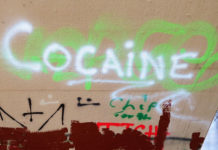The treatment process for drug addiction is usually carried out in a clinical setting usually with the help of a doctor or psychologist. Drug addiction is often difficult to treat since the physical dependency is so powerful. Therefore most patients need at least one year to be successfully treated before recovery is possible. Many patients also experience withdrawal symptoms that prolong recovery. The key to successful recovery is the determination of the addict to stop using drugs the understanding that a drug user is suffering from a mental illness and the commitment to get the person into a program where he can be able to overcome his addiction.
There are three basic types of treatment for drug dependence. These include residential rehabilitation inpatient care outpatient care. Residential rehabilitation programs involve the patient being given assistance by medical and mental health professionals to help him recover from drug addiction. Treatment options which address an individual’s specific situation and co-existing medical social and psychological issues will result in sustained recovery. Patients usually take medications to treat drug cravings and ease extreme physical symptoms of withdrawal. Medication therapy is an essential part of the treatment process.
A residential rehabilitation treatment program usually requires a patient to have to spend a minimum of nine months at a treatment center. An inpatient care option usually lasts between six months to two years and involves staying at a treatment center for a month or more. Outpatient care is often combined with an inpatient program in cases where the patient is able to stay sober long enough to be discharged without being re-admitted. Drug treatment programs which involve inpatient care are often more expensive but they offer the greatest chance of success.











